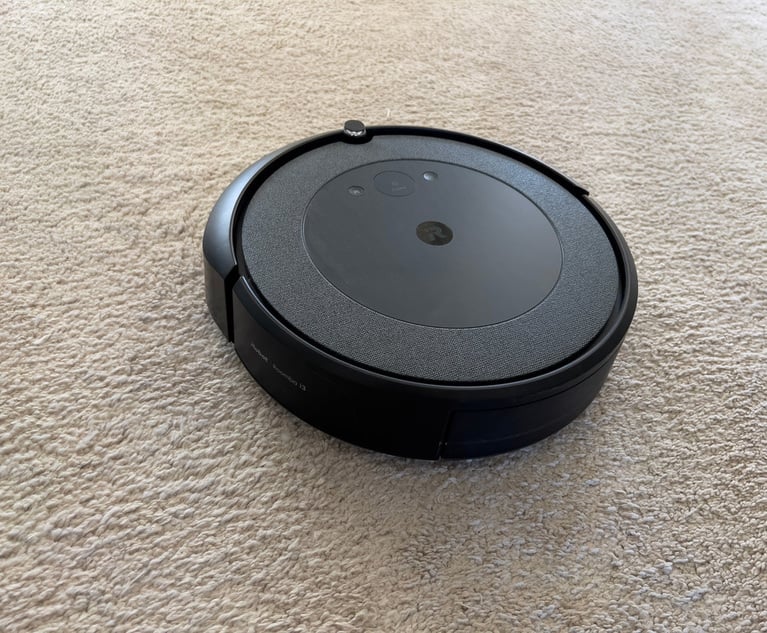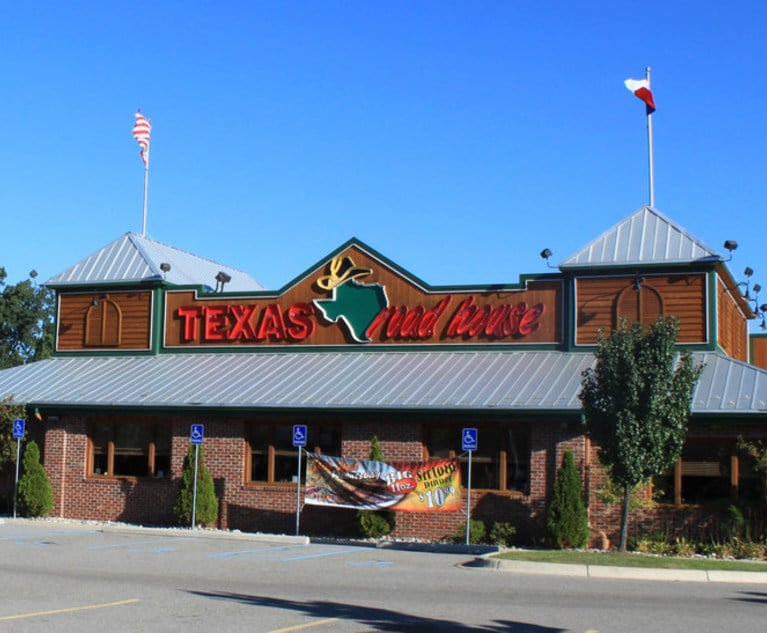Attorney-Client Privilege Bars Access to Docs in Case Over Barnes & Noble CEO's Ouster
The U.S. magistrate judge did, however, order the bookstore chain to turn over a trove of other documents that he said were unrelated to potential litigation.
October 04, 2019 at 05:19 PM
4 minute read
The original version of this story was published on New York Law Journal
 Barnes & Noble Inc. store in Manhattan. Photo Credit: Eric Thayer/Bloomberg
Barnes & Noble Inc. store in Manhattan. Photo Credit: Eric Thayer/BloombergA federal magistrate judge in Manhattan has rejected a bid by Barnes & Noble's former CEO to gain access to documents prepared by the company's lawyers amid a sexual harassment investigation that led to his ouster.
U.S. Magistrate Judge Gabriel W. Gorenstein on Friday said that the documents, prepared by Barnes & Noble's general counsel and outside attorneys, were meant to provide legal advice to the company and were thus protected by the attorney-client privilege.
The U.S. magistrate judge did, however, order the bookstore chain to turn over a trove of other documents that he said were unrelated to potential litigation.
The ruling came in Demos Parneros' breach-of-contract and defamation lawsuit in the Southern District of New York that seeks compensation for his firing last year. Specifically, Parneros had sought documents from Barnes & Noble general counsel Bradley Feuer's investigation into claims levied by an executive assistant, as well as a report by Paul, Weiss, Rifkind, Wharton & Garrison, which was presented to the Barnes & Noble board ahead of a June 27 vote to terminate his employment.
Parneros argued in a motion to compel that, because the materials were prepared for business purposes, no privilege attached. But Gorenstein rejected that premise, saying it was clear from the record that Feuer was immediately concerned that the Parneros' accuser could possibly bring claims against the company and quickly engaged the help of outside counsel from Paul Weiss.
"The mere fact that there was a business benefit obtained from conducting the investigation does not detract from the circumstances here indicating that the predominant purpose of the investigation was to gather facts for the general counsel so he could give legal advice to the corporation," Gorenstein wrote in a 37-page opinion.
Other documents, however, lacked similar protections. Gorenstein, who is overseeing privilege-related discovery issues, ordered Barnes & Noble to produce a series of email communications between nonattorney executives, as the company drafted a press release announcing Parneros' firing. According to court filings, Parneros viewed those materials as important to his defamation claim, which alleged that the release had falsely implied that he had engaged in "serious sexual misconduct."
The company, meanwhile, had argued that the documents were protected under the work-product doctrine, which shields from discovery documents prepared "in anticipation of litigation."
"While work product protection is available for non-attorneys even when they act without the direction of an attorney to prepare materials in anticipation of litigation … there is no evidence in the record that any of the individuals who were circulating press releases did so because they anticipated litigation," Gorenstein said. "Accordingly, Barnes & Noble is ordered to produce these documents."
An attorney for Barnes & Noble was not immediately available on Friday to comment, and Parneros' counsel declined to comment on the ruling.
Barnes & Noble has asserted counterclaims against Parneros for breaching his fiduciary duties of loyalty and good faith and for damages for acting as a faithless servant to the company. Discovery is expected to wrap in the case by Oct. 18, and the sides are currently eyeing a potential bench trial in March.
The case, captioned Parneros v. Barnes & Noble, is assigned to U.S. District Judge John G. Koeltl.
Parneros is represented by Debra L. Raskin and Anne L. Clark of Vladeck, Raskin & Clark in New York.
Barnes & Noble is represented by Jay Cohen, Maria Keane, Arianna Markel and Liza May Velazquez of Paul Weiss.
Read More:
Barnes & Noble Must Front Half of Legal Fees Expected to Be Incurred in CEO's Challenge to Ouster
#MeToo at the Bookstore: Barnes & Noble Claims It Fired CEO for Sexual Misconduct
Ousted Barnes & Noble CEO Accuses Company of 'False' Press Release
This content has been archived. It is available through our partners, LexisNexis® and Bloomberg Law.
To view this content, please continue to their sites.
Not a Lexis Subscriber?
Subscribe Now
Not a Bloomberg Law Subscriber?
Subscribe Now
NOT FOR REPRINT
© 2025 ALM Global, LLC, All Rights Reserved. Request academic re-use from www.copyright.com. All other uses, submit a request to asset-and-logo-licensing@alm.com. For more information visit Asset & Logo Licensing.
You Might Like
View All

Riding High, Texas Roadhouse Gives Legal Chief 3-year Contract Extension,15% Salary Boost
2 minute read
'Be Comfortable Being Uncomfortable': Pearls of Wisdom From 2024 GC Q&As

Trending Stories
Who Got The Work
J. Brugh Lower of Gibbons has entered an appearance for industrial equipment supplier Devco Corporation in a pending trademark infringement lawsuit. The suit, accusing the defendant of selling knock-off Graco products, was filed Dec. 18 in New Jersey District Court by Rivkin Radler on behalf of Graco Inc. and Graco Minnesota. The case, assigned to U.S. District Judge Zahid N. Quraishi, is 3:24-cv-11294, Graco Inc. et al v. Devco Corporation.
Who Got The Work
Rebecca Maller-Stein and Kent A. Yalowitz of Arnold & Porter Kaye Scholer have entered their appearances for Hanaco Venture Capital and its executives, Lior Prosor and David Frankel, in a pending securities lawsuit. The action, filed on Dec. 24 in New York Southern District Court by Zell, Aron & Co. on behalf of Goldeneye Advisors, accuses the defendants of negligently and fraudulently managing the plaintiff's $1 million investment. The case, assigned to U.S. District Judge Vernon S. Broderick, is 1:24-cv-09918, Goldeneye Advisors, LLC v. Hanaco Venture Capital, Ltd. et al.
Who Got The Work
Attorneys from A&O Shearman has stepped in as defense counsel for Toronto-Dominion Bank and other defendants in a pending securities class action. The suit, filed Dec. 11 in New York Southern District Court by Bleichmar Fonti & Auld, accuses the defendants of concealing the bank's 'pervasive' deficiencies in regards to its compliance with the Bank Secrecy Act and the quality of its anti-money laundering controls. The case, assigned to U.S. District Judge Arun Subramanian, is 1:24-cv-09445, Gonzalez v. The Toronto-Dominion Bank et al.
Who Got The Work
Crown Castle International, a Pennsylvania company providing shared communications infrastructure, has turned to Luke D. Wolf of Gordon Rees Scully Mansukhani to fend off a pending breach-of-contract lawsuit. The court action, filed Nov. 25 in Michigan Eastern District Court by Hooper Hathaway PC on behalf of The Town Residences LLC, accuses Crown Castle of failing to transfer approximately $30,000 in utility payments from T-Mobile in breach of a roof-top lease and assignment agreement. The case, assigned to U.S. District Judge Susan K. Declercq, is 2:24-cv-13131, The Town Residences LLC v. T-Mobile US, Inc. et al.
Who Got The Work
Wilfred P. Coronato and Daniel M. Schwartz of McCarter & English have stepped in as defense counsel to Electrolux Home Products Inc. in a pending product liability lawsuit. The court action, filed Nov. 26 in New York Eastern District Court by Poulos Lopiccolo PC and Nagel Rice LLP on behalf of David Stern, alleges that the defendant's refrigerators’ drawers and shelving repeatedly break and fall apart within months after purchase. The case, assigned to U.S. District Judge Joan M. Azrack, is 2:24-cv-08204, Stern v. Electrolux Home Products, Inc.
Featured Firms
Law Offices of Gary Martin Hays & Associates, P.C.
(470) 294-1674
Law Offices of Mark E. Salomone
(857) 444-6468
Smith & Hassler
(713) 739-1250






